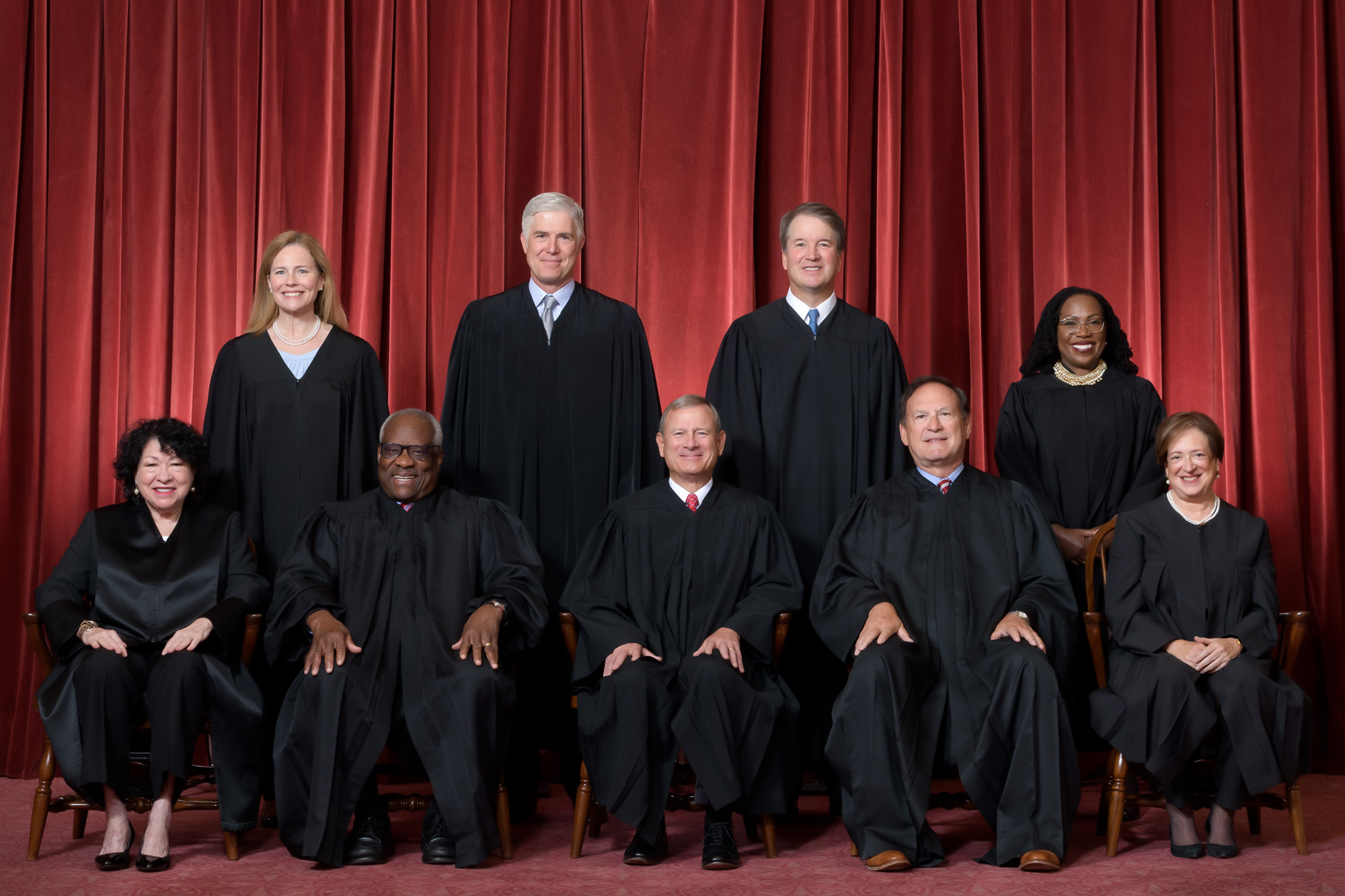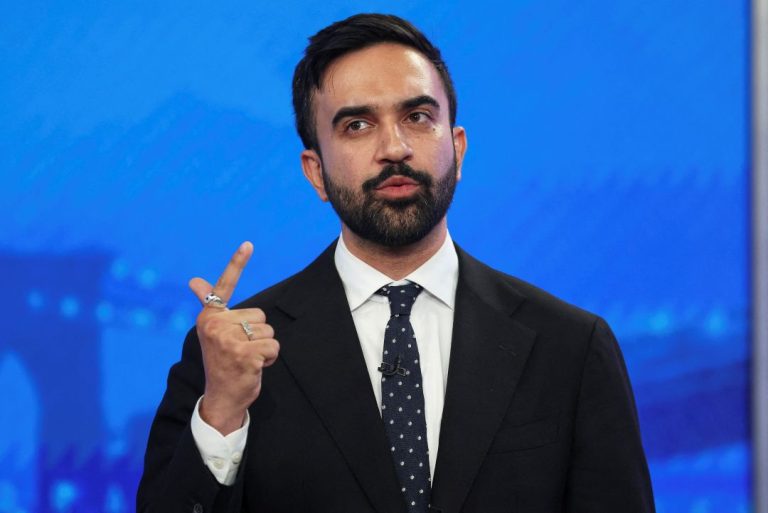High Court Declines to Revisit Landmark Marriage Ruling
The U.S. Supreme Court on Monday declined to revisit Obergefell v. Hodges, the 2015 decision that recognized same-sex marriage as a constitutional right. The move marks a significant moment for the Court, which has faced growing scrutiny over its willingness to revisit major social precedents in recent years.
The case stemmed from an appeal filed by Kim Davis, a former county clerk in Kentucky who refused to issue marriage licenses to same-sex couples after the Obergefell ruling. Davis, who cited religious objections at the time, was later jailed for six days and now faces hundreds of thousands of dollars in damages and legal costs.
The Supreme Court’s decision to turn away her appeal leaves those penalties intact — and, at least for now, preserves the legal foundation of same-sex marriage nationwide.
Court Stays Silent on Its Reasoning
The justices offered no explanation for declining to hear the case, a standard practice when denying appeals. However, the Court’s silence comes amid heightened public concern about whether the conservative majority might eventually move to undo the 2015 precedent.
That anxiety has only grown since the Court’s 2022 decision to overturn Roe v. Wade, ending the federal right to abortion. Many legal scholars have speculated that Obergefell could be the next landmark ruling to face reconsideration.
CNN noted that Monday’s rejection was closely watched for signs that the Court might be open to such a challenge. Instead, the justices left the lower court’s ruling in place — a quiet signal that, for now, the right to same-sex marriage remains settled law.
The Case Behind the Petition
Kim Davis became a national figure in 2015 when she refused to grant marriage licenses to same-sex couples in Rowan County, Kentucky, despite a Supreme Court order. Her refusal led to protests, lawsuits, and her brief imprisonment.
In the years since, Davis has become a symbol for those arguing that religious liberty should allow individuals to refuse participation in same-sex marriages. Her attorney, Liberty Counsel founder Mat Staver, framed the case as an opportunity to revisit what he described as a constitutionally unsound ruling.
“Obergefell was egregiously wrong,” Staver wrote in his petition. He claimed the decision “set out on a collision course with the Constitution from the day it was decided.”
According to the filing, the case presented “the ideal opportunity to revisit substantive due process” — the legal doctrine used to justify the original Obergefell decision.
The Religious Liberty Argument
Davis’s legal team has long argued that requiring public officials to issue same-sex marriage licenses infringes upon their freedom of religion. In their latest appeal, they claimed that Obergefell has made it “increasingly difficult to participate in society without violating deeply held beliefs.”
The petition suggested that if Obergefell were overturned, the right to regulate marriage would return to individual states. Existing marriages would remain legally recognized, but new licensing decisions would fall under state authority.
Staver reiterated that position in interviews, saying, “The ruling had no basis in the Constitution. It’s what caused Kim Davis to be sent to prison and now face financial ruin. It’s time to reevaluate and overturn it.”
Experts See Limited Appetite for Change
Legal analysts, however, believe the Court’s decision to stay out of the dispute signals that a majority of justices are not ready to reopen the question of same-sex marriage.
“There’s a chance the conservative justices might use this case to expand protections for religious objectors,” said Daniel Urman, a law professor at Northeastern University. “But that’s very different from overturning Obergefell itself.”
Urman noted that same-sex marriage has become “culturally embedded” in American life, pointing to consistent public support for marriage equality across major polls.
Paul Collins, a political science professor at the University of Massachusetts Amherst, agreed that Davis’s appeal was unlikely to serve as a vehicle for undoing the 2015 precedent.
“This is about damages — not about the constitutional question directly,” Collins said. “It’s just not the right case for relitigating the right to marry.”
Political and Cultural Reactions
Reactions to the Court’s decision came swiftly from both sides of the political spectrum. LGBTQ advocacy groups welcomed the move as a relief, saying it signals continued judicial stability on marriage rights.
“This decision provides reassurance that marriage equality remains the law of the land,” said Sarah Warbelow, legal director for the Human Rights Campaign. “Americans deserve to live without fear that their marriages could be invalidated overnight.”
Conservative organizations, meanwhile, expressed disappointment, arguing that the Court missed an opportunity to reconsider what they see as a misinterpretation of constitutional principles.
“This was a missed chance to defend religious liberty,” said Kelly Shackelford, president of First Liberty Institute. “The Constitution does not require people of faith to choose between their beliefs and their public duties.”
A Cautious Court in a Divided Era
The decision fits a broader pattern for the Supreme Court in 2025. While the justices have taken bold steps in some areas — such as restricting administrative powers and expanding Second Amendment rights — they have also shown restraint when it comes to revisiting certain social issues.
Observers suggest the Court may be reluctant to reopen another divisive national debate so soon after Roe v. Wade’s reversal, which triggered intense backlash and motivated voter turnout across multiple elections.
“The Court is aware of its institutional limits,” said Dr. Laura Edwards, a constitutional historian. “Taking on same-sex marriage again would risk another credibility crisis, especially when public sentiment is clear.”
The Future of Religious Liberty Cases
Although Obergefell remains intact, the broader debate over religious freedom and same-sex marriage continues to evolve. In recent years, the Court has sided with religious business owners in several high-profile cases, including those involving wedding cakes, websites, and adoption agencies.
Those rulings suggest that while the constitutional right to same-sex marriage stands, its interaction with religious liberty will remain a contested issue.
“The Court is carving out space for religious exemptions,” Urman explained. “They’re not undoing Obergefell, but they are defining its limits.”
As such, Davis’s case may not have overturned marriage equality — but it could still influence how future disputes are decided.
A Decade Later, the Debate Continues
Nearly ten years after Obergefell, same-sex marriage remains one of the most consequential Supreme Court rulings in modern history. It reshaped family law, civil rights, and cultural norms in every state.
While Monday’s denial of review leaves the ruling untouched, it also highlights how fragile some legal victories can feel in a rapidly shifting judicial landscape.
For now, the rights established in 2015 remain secure. Yet both supporters and opponents acknowledge that the cultural and legal debates surrounding marriage — and the balance between equality and religious liberty — are far from over.

James Jenkins is a celebrated Pulitzer Prize-winning author whose work has reshaped the way readers think about social justice and human rights in America. Raised in Atlanta, Georgia, James grew up in a community that instilled in him both resilience and a strong sense of responsibility toward others. After studying political science and creative writing at Howard University, he worked as a journalist covering civil rights issues before dedicating himself fully to fiction. His novels are known for their sharp, empathetic portraits of marginalized communities and for weaving personal stories with broader political realities. Jenkins’s breakout novel, Shadows of Freedom, won national acclaim for its unflinching look at systemic inequality, while his more recent works explore themes of identity, resilience, and the fight for dignity in the face of oppression. Beyond his novels, James is an active public speaker, lecturing at universities and participating in nonprofit initiatives that support literacy and community empowerment. He believes that storytelling is a way to preserve history and inspire change. When not writing, James enjoys jazz music, mentoring young writers, and traveling with his family to explore cultures and stories around the world.









